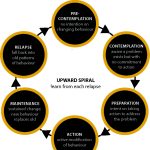Attending therapy can be very beneficial, offering a safe space to explore feelings, thoughts, and behaviors. However, the time spent in therapy is limited. To truly progress in improving your mental health, you’ll need to take an active approach outside of sessions. This means engaging in self-care practices, implementing coping strategies, and creating a supportive environment for yourself. Here are some practical steps to help you work on your mental health between therapy appointments.
1. Develop a Routine
Establishing a daily routine can provide structure and a sense of normalcy, which is especially important during times of mental distress. A well-balanced routine should include:
- Regular Sleep Schedule: Aim for 7-9 hours of quality sleep each night.
- Healthy Eating Habits: Eat balanced meals at consistent times.
- Physical Activity: Engage in regular exercise, such as walking, yoga, or gym workouts.
- Personal Time: Set aside time for hobbies and relaxation.
2. Practice Mindfulness and Meditation
Mindfulness and meditation can help manage stress and improve emotional regulation. By focusing on the present moment, you can reduce the impact of negative thoughts and increase self-awareness. Start with short sessions (1 minute counts!) and gradually increase the duration as you become more comfortable with the practice. There are numerous apps and online resources to guide you through mindfulness and meditation exercises. I like the Headspace and Ten Percent apps!
3. Engage in Journaling
Journaling is a powerful tool for processing emotions and reflecting on your experiences. Writing down your thoughts and feelings can provide clarity, reduce stress, and help you track your progress over time. Try to journal regularly, even if it’s just for a few minutes each day. Focus on your thoughts, emotions, and any challenges you’re facing, as well as any positive experiences or accomplishments. Try to include a focus on things you’re grateful for or creating affirmations that you can practice throughout your day.
4. Utilize Coping Strategies
Therapists often provide coping strategies to manage anxiety, depression, and other mental health issues. It’s important to practice these techniques outside of therapy to reinforce their effectiveness. Common coping strategies include:
- Deep Breathing Exercises: Practice deep breathing to calm your mind and body.
- Progressive Muscle Relaxation: Tense and relax different muscle groups starting from your toes and moving up each part of your to your head to reduce physical tension.
- Grounding Techniques: Use all of your senses to stay connected to the present moment and reduce feelings of dissociation or panic.
5. Build a Support Network
Having a strong support network can significantly impact your mental health. Reach out to friends, family, or support groups to share your experiences and seek advice. It’s essential to communicate openly about your needs and boundaries to create a supportive environment. Online communities and forums can also provide valuable support and connection.
6. Engage in Creative Activities
Creative activities, such as drawing, painting, or playing music, can be therapeutic and provide an outlet for self-expression. These activities can help reduce stress, improve mood, and enhance overall well-being. Don’t worry about the quality of your work; focus on the process and how it makes you feel.
7. Set Realistic Goals
Setting realistic and achievable goals can provide a sense of purpose and direction. Break down larger goals into smaller, manageable steps and celebrate your progress along the way. This approach can help build confidence and motivation, contributing to your overall mental health recovery.
8. Practice Self-Compassion
It’s important to be kind to yourself during your recovery journey. Acknowledge your efforts and progress, even if they seem small. Avoid self-criticism and recognize that setbacks are a natural part of the process. Practice self-compassion by treating yourself with the same kindness and understanding you would offer a friend.
9. Seek Continuous Learning
Educate yourself about mental health by reading books, articles, or attending workshops and webinars. Understanding your situation or condition and learning about different treatment options can empower you to take control of your recovery. Knowledge can also reduce stigma and increase your ability to advocate for yourself. A great book to start with is What Happened to You: Conversations on Trauma, Resilience and Healing by Oprah Winfrey and Bruce D. Perry, Ph.D.
10. Maintain Open Communication with Your Therapist
Keep your therapist informed about your progress, challenges, and any new coping strategies you’re trying. This communication can help tailor your therapy sessions to better meet your needs and ensure you’re on the right track. Don’t hesitate to ask for additional resources or support if you need it.
Conclusion
Taking an active approach to your mental health recovery outside of therapy sessions is essential for long-term progress. By developing a routine, practicing mindfulness, journaling, utilizing coping strategies, building a support network, engaging in creative activities, setting realistic goals, practicing self-compassion, seeking continuous learning, and maintaining open communication with your therapist, you can create a holistic and supportive environment for yourself. Remember, recovery is a journey, and every step you take brings you closer to a healthier and more fulfilling life.
If you have any specific questions or need further guidance, feel free to reach out. Your mental health journey is unique, and finding the right combination of strategies and support is key to your success. 🦋







